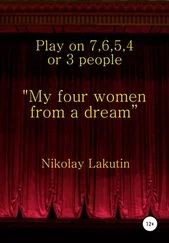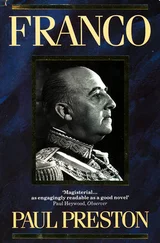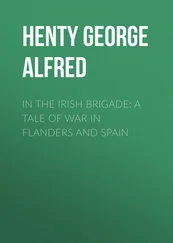Pip took the war badly. It definitively separated her from Ataúlfo and she felt suicidal – ‘I’d die tomorrow with pleasure if I had not been brought up to think it cowardly to commit suicide. I never thought I should really want to. But what on earth is there worth living for? I have lost the one person I love and always will love. I may get used to the hurt but I will never forget or lose it.’ 130 She rejected out of hand any possibility that Ataúlfo’s behaviour might have been occasioned by homosexuality. She was still fuming because, four years earlier, Moke FitzClarence had put round a story that Ataúlfo was ‘a pansy’ because he had not taken the opportunity to kiss her in a taxi. 131 To break out of her black mood, Pip threw herself into socialising and drank too much. At one point, she met a man called Christopher Hobhouse who asked her to consider working for British Intelligence in Spain, a suggestion she rejected indignantly as snooping on her friends. She had a perpetual hangover, alcohol being increasingly her response to the emptiness of life after Spain. She wrote: ‘I wish I could stop myself bounding into these fits of hectic gaiety when I am sick of life.’ Her gloom was intensified by news that a decline in the family fortunes might mean the loss of Seaford House and maybe also Chirk Castle. 132
Pip found the phoney war unbearable. Ataúlfo remained foremost in her thoughts. She was obliged to attend lectures about the war and longed to interrupt and tell the ignorant lecturers about the real effects of being shelled. A visit from her ex-lover John Geddes did nothing for her and she found herself becoming hard and bitter. ‘I can’t stick this continual ache much longer. I can’t eat, I can’t sleep, food just makes me feel sick and every time I shut my eyes I think I see Ataúlfo.’ Brief telegrams and letters from him did reach her but merely set her off weeping and aching when she considered that it might be years before they could meet again. She continued to drink far too much – whisky and brandy by night alternating with Bromo-Seltzer by day. The men that she met just bored her. 133
At the beginning of November, she started to train formally as a nurse at St Thomas’s Hospital. After her experience in Spain, she was mortified to be treated as a total novice. She wrote on 8 November, ‘no one can stand getting up at 7.30, spending the day in a hospital, dancing till 6 in the morning, sleeping one hour, eating one meal only and drinking too much, for long. I shall have to sober up or I will crack up. I already look like the wrath of God.’ After virtually running a hospital at the front, to be prevented from doing anything more complex than making beds severely dented her morale: ‘I have lost everything in the world I wanted since then [the last time that she had seen Ataúlfo], most depressing of all, my optimism. A year ago today, Consuelo and I were running single-handed a hospital of eighty-two beds and we had thirty-six new patients. This year I went to St Thomas’s Hospital and made two beds in an empty ward and was taught a few things I have already done hundreds of times.’ The next day was her twenty-third birthday, enlivened by telegrams from Princess Bea, Prince Ali and Ataúlfo. Suggestions that she return to Sanlúcar cheered her up as did a stint on the men’s surgical ward at the hospital. ‘There is something very funny about scrubbing the bottom of a London policeman.’
Her dejection finally began to dissolve after an invitation by a social acquaintance, Maureen Schreiber, to join a field hospital leaving for France in January 1940. Presented to the French by Lord and Lady Hadfield and organised by Mary, the wife of Brigadier-General Spears, it was large and well-equipped, with thirteen doctors, x-ray facilities, one hundred beds, trucks and tents. Pip agreed – with no illusions. There was no excitement, just a sense of duty and a desperate need for something to distract her from the endless longing for Ataúlfo. ‘I must do something and that will be about the best. I would far rather go to Spain and ignore the whole thing for evermore, but I can’t do that so I had better work … Am I going to spend all my life drifting about in wars from one hospital to another with no aim and no ambition … I am tired out from war already and I know what it is going to be like so it is no adventure any longer.’ She really wanted to go to Sanlúcar but dared not, knowing she could spend only a finite period there and that the pain of separation would be ever more unbearable. It was thus with dread in her heart that she accepted the invitation to join the Hadfield-Spears ambulance unit. 134 Burnt-out by her front-line experience, she wrote: ‘I suppose I ought to be glad to have had six months rest since I left Madrid, but it has not been a very happy one and soon I must go back to the sickening smell and sound of it again.’ 135
To say that she had left her heart in Spain was an understatement. In mid-December, she received a visit from Últano Kindelán and his English wife Doreen. Most of her diary entries recount a lively social life that left her deeply miserable and a sense of alienation. Now ‘a breath of my beloved Spain’ filled her with joy. ‘The realisation that Spain is not all a dream, that they all exist and want me back and that one day I can go. It was wonderful and I felt alive and interested in life again for a moment.’ She wished she could accept their invitation to go back to Spain with them. As it was, she had to meet her colleagues from the medical unit: ‘hard-faced wispy old hags except one pop-eyed nit-wit’. She was gratified by a telegram on 16 December from Ataúlfo: ‘Thanks letters. Can’t see why you shouldn’t come here for next five years.’ On the following day, it was backed up by another from Consuelo which read: ‘For the Lord’s sake do what Ataúlfo says in his telegram. You will regret it all your life if you don’t come.’ Her reaction – that, despite her longing, to go without a prospect of fulfilment would just be to condemn herself to unhappiness – was both courageous and momentous. ‘For five years I have chased after Ataúlfo like a fool. Now if he wants to, he can come and fetch me but if he does not want me I won’t go back.’ She began sporadically to get angry with Ataúlfo by way of reconciling herself to what was likely to be a final break. Her wretchedness was not diminished by the packing-up of Seaford House in advance of it being abandoned by the family for good. 136
Nineteen-forty started with more telegrams from Ataúlfo, more heartache for Pip and relief that she would soon be off to France. The telegrams provoked tears and intense hurt by forcing her to contemplate her impossible situation. As departure for France beckoned, she began to regret rejecting the invitations to Sanlúcar. In bitterly freezing weather, she left London on 29 January 1940. She spent a pleasant fortnight in Paris, shopping and taking advantage of well-stocked and cheap restaurants. With the war seemingly a long way off, she bought clothes, gramophone records and ‘material for curtains etc for my future rooms’. On 12 February, the unit moved to northeast France, setting up a hospital between Nancy and Sarrebourg in the Moselle. Although the hospital was near the front, there was virtually no military action and the work was inconsequential and tedious. It was enlivened by one daring visit to the Maginot line to peer at the Germans and by occasional concert parties. 137 Her hopes were raised by a possibility that Ataúlfo would come to London as adjutant to Juan Antonio Ansaldo who had been named Spanish Air Attaché. 138 She was pleased too when her experience and her good French and English saw her given considerable responsibility. As the work increased, she was moved to write: ‘I am gradually getting happier here and more or less contented. All bothers of life are so far away from one here that one can’t worry so very much.’ She forged a friendship with another English woman in the unit, Dorothy ‘Dodo’ Annesley, and even had a mild flirtation with an American officer called Etienne Gilon. 139
Читать дальше












